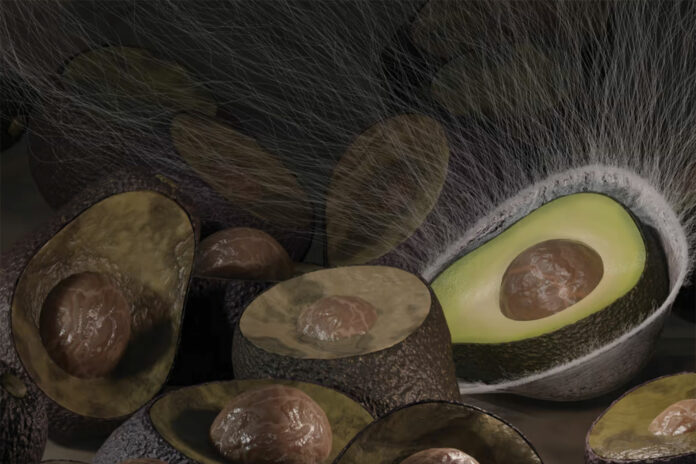Plastic wraps and containers may be great at preserving food, but after it is used, most of them are thrown away and often litters our waterways. Food packaging is directly responsible for a broad range of environmental issues, including overcrowded landfills and greenhouse gas emissions.
Aiming to produce environmentally friendly alternatives to plastic food wrap and containers, researchers at Harvard and Rutgers have developed a biodegradable, plant-based coating that can be sprayed on foods, guarding against pathogenic and spoilage microorganisms and transportation damage. The coating could potentially reduce the adverse environmental impact of plastic food packaging as well as protect human health.
The new coating consists of polysaccharide/biopolymer-based fibers. The material can be produced at scale relatively easily, using a technology called focused rotary jet spinning. The stringy material can then be spun from a heating device that resembles a hair dryer and “shrink-wrapped” over foods of various shapes and sizes, such as an avocado or a sirloin steak.
The resulting material that encases food products is sturdy enough to protect against bruising and contains antimicrobial agents to fight spoilage and pathogenic microorganisms such as E. coli and listeria. The plant-based coating can be rinsed off with water and degrades in soil within three days, according to the researchers. In tests, the team found the coating extended the shelf life of avocados by 50%.
The new packaging is targeted at addressing a serious environmental issue: the proliferation of petroleum-based plastic products in the waste stream.
This is not the first time that researchers have made efforts to develop environmentally friendly food packaging to protect food and replace plastic. Other teams have experimented with packaging made from a type of corn protein called zein, starch, and other naturally derived biopolymers, packaging material made of banana plantation waste, and single-use Styrofoam packaging.
“What we have come up with is a scalable technology, which enables us to turn biopolymers, which can be derived as part of a circular economy from food waste, into smart fibers that can wrap food directly. This is part of a new generation, ‘smart’ and ‘green’ food packaging,” said Philip Demokritou, director of the Nanoscience and Advanced Materials Research Center and corresponding author of the study.
